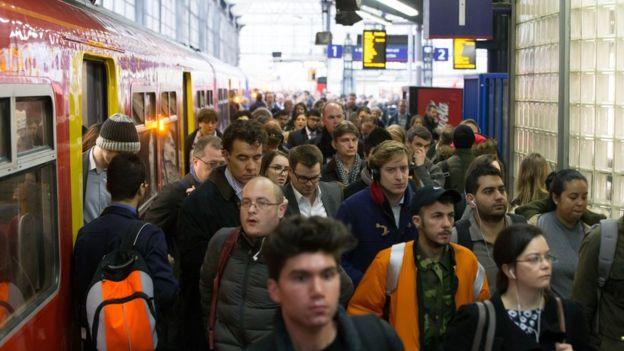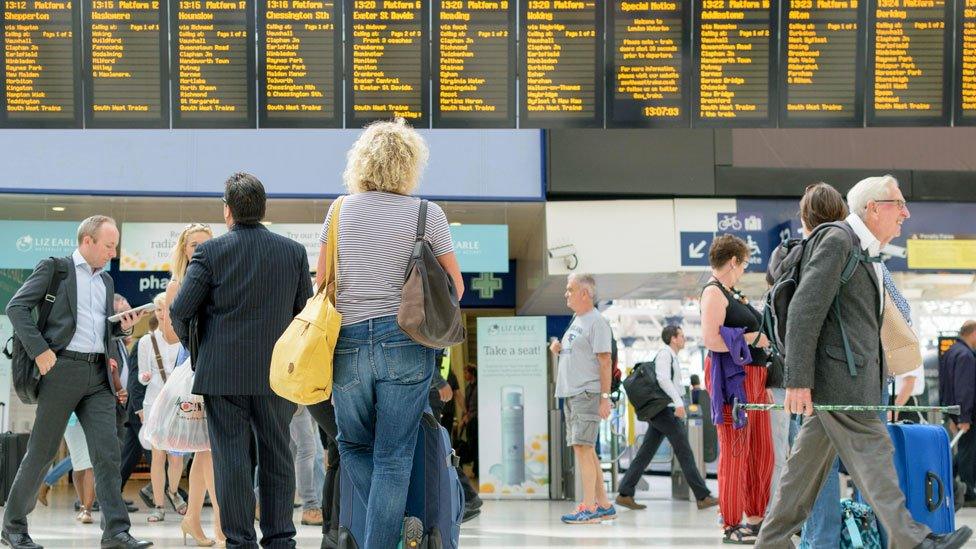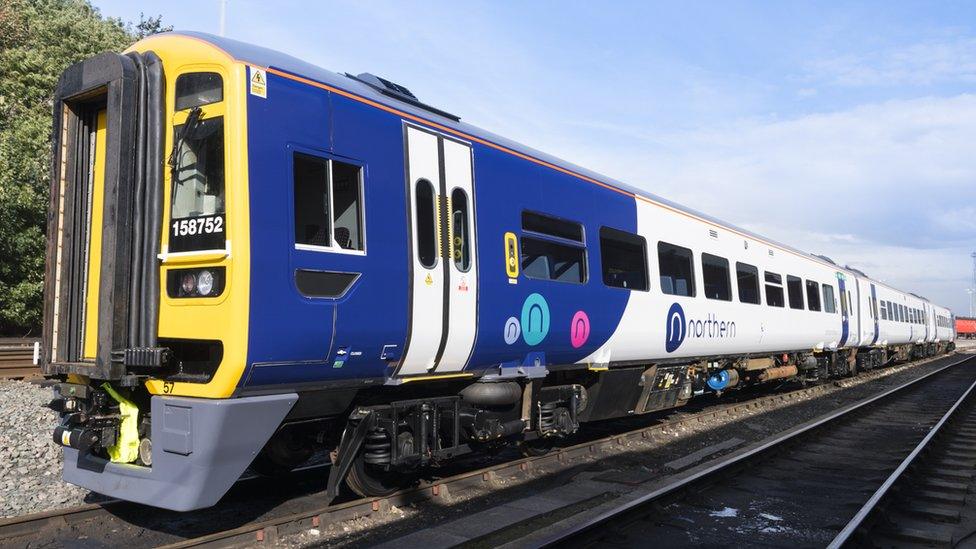Rail franchise model 'is bust' says former Network Rail chief
- Published
- comments

The UK's rail franchise model is "bust" and should be reviewed, former Network Rail chief Sir John Armitt has said.
Rail operators take "very significant revenue risk" which has "got them into trouble", he told the BBC.
This is because the government "will always go for the most optimistic forecast of revenue".
His comments came as the National Infrastructure Commission (NIC), which Sir John chairs, issued a report, external into the UK's infrastructure requirements.
The NIC's report, which gives independent advice to government, looked at a wide range of infrastructure needs, including road, energy supply and broadband.
It said the UK should not agree to back more than one new nuclear plant after Hinkley Point C is built, because renewable energy represents the best value for consumers.
Risk sharing
Regarding the rail industry, Sir John, who is also chairman of National Express Group, said Network Rail had "effectively been renationalised" and that rail franchise provision is "dictated by the government".
"But in fact the rail franchise companies, as we've seen, have to take very significant revenue risk, and that's got them into trouble, because the government will always go for the most optimistic forecast of revenue," he said.
"That model, I think, is bust, and it needs to be reviewed, and a more appropriate sharing of risk on the railway needs to take place."
The UK's rail franchising system has been criticised repeatedly.
In February, MPs said it was "not fit for purpose", and pointed out "serious deficiencies" in the way the Department for Transport awards contracts, leading to higher fares and poor performance.
In May this year, rail services on the East Coast mainline were brought back under government control after the franchise for the network failed again.
There was also widespread disruption in May after new rail timetables were introduced, leading to an inquiry in June.
Renewables call
Sir John has previously backed nuclear energy, but he said half the UK's energy could be renewable by 2030.
"We believe that by 2050 we could have probably 70% to 80% of our energy coming from renewables at no more cost than a nuclear programme," Sir John said.
Cost reductions were more likely from renewables rather than nuclear, he added.
Britain plans to build a new fleet of nuclear plants to replace ageing coal and nuclear reactors set to close in the 2020s as well as to help cut the country's carbon emissions.
However, private investors have proved reluctant to take on the huge costs of new nuclear plants.
The government has come under fire for agreeing to pay a price for electricity from EDF's Hinkley Point C plant - due to come online by the end of 2025 - which is above rival power projects by a considerable margin.

Analysis
by Roger Harrabin, BBC environment analyst
Renewables can supply at least half the UK's energy generating capacity by 2030, but only if ministers offer more support to renewables now.
That's the message from the first official assessment of national infrastructure needs up to 2050.
Critics say the report sounds ambitious but actually leaves the UK short of climate targets already agreed.
The National Infrastructure Commission says investment in the UK must respond to a heating climate.
It urges a mass programme of home insulation to save energy, and more investment to combat droughts, especially in the south east.
It demands a swift switch to electric vehicles.
The Commission's recommendations on electric cars are challenging. Just a day after the government announced that half of new cars sold by 2030 should be ultra-low emissions, the NIC doubles that ambition by insisting that 100% of new cars should be zero emissions by that date.
It says electric cars will soon have the same range and be cheaper to buy and maintain than conventional vehicles.
There's an intriguing mention of self-driving cars. It says these could prove so attractive that they jam up the road network. The answer, it says, is to ensure all new housing developments have excellent public transport.
There's one area where the report is thin: it admits that the UK can't meet its climate change laws if it continues to heat homes with gas. But it doesn't offer a clear solution to heating - the most difficult of climate challenges for UK policy

- Published10 July 2018

- Published2 July 2018

- Published27 April 2018
